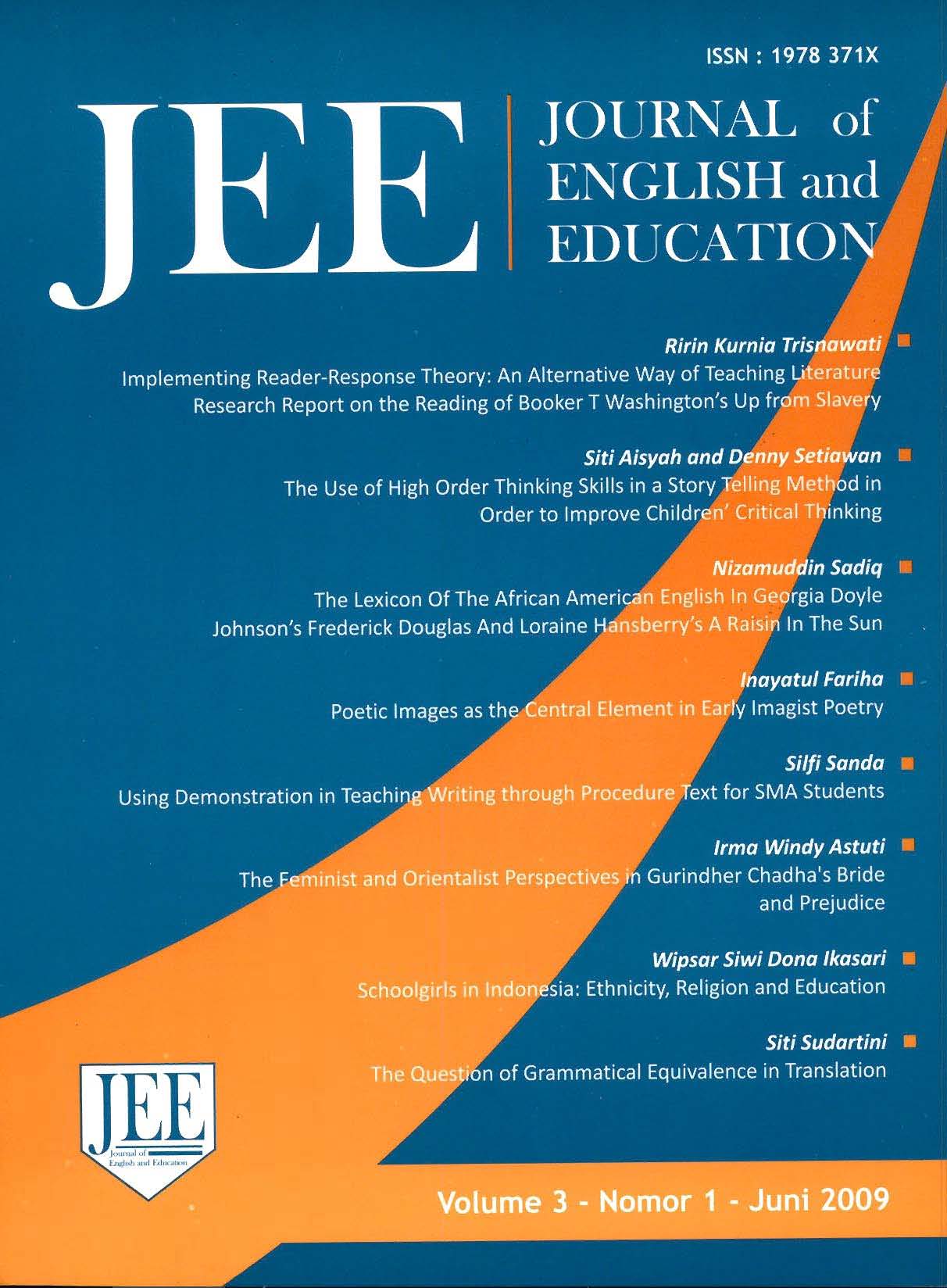Main Article Content
Abstract
This study is concerned with three aspects of grammatical equivalence occurring in translation, namely, person, tense and voice. In particular, this study tries to answer some questions related to the notion of grammatical equivalence in English-Bahasa Indonesia translation related to the categories of person (pronoun), tenses, and voice. This study is a descriptive qualitative one which tries to describe and delineate the phenomenon of translation naturally without the intervention of an experiment or an artificially contrived treatment. This kind of study requires a holistic perspective of there search area in order to gather as much information as possible and to avoid any manipulation or interference in the study context. The results of the study have shown the followings. Firstly, most of the English pronouns with person reference are translated by the personal pronouns in Bahasa Indonesia, some are not translated by the personal pronouns in Bahasa Indonesia since their meaning are considered known from their context, and some other are not translated by personal pronouns but rather by repeating then our reference. Secondly, the category of tense in Englis his presented morphologically by changing the verb forms whereas in Bahasa Indonesia it is presented lexically by adding words indicating the time relation of the event presented by the verb. Thirdly, both English and Bahasa Indonesia have the category of voice but they do not always use this category with the same frequency. The active forms in English are not always translated into active forms in Bahasa Indonesia, and vice versa.
Keywords
Article Details
Copyright (c) 2016 JEE, Journal of English and Education

This work is licensed under a Creative Commons Attribution-ShareAlike 4.0 International License.
Authors who publish with this journal agree to the following terms:
- Authors retain copyright and grant the journal right of first publication with the work simultaneously licensed under a Creative Commons Attribution-ShareAlike 4.0 International License that allows others to share the work with an acknowledgment of the work's authorship and initial publication in this journal.
- Authors are able to enter into separate, additional contractual arrangements for the non-exclusive distribution of the journal's published version of the work (e.g., post it to an institutional repository or publish it in a book), with an acknowledgment of its initial publication in this journal.
- Authors are permitted and encouraged to post their work online (e.g., in institutional repositories or on their website) prior to and during the submission process, as it can lead to productive exchanges, as well as earlier and greater citation of published work (See The Effect of Open Access).

